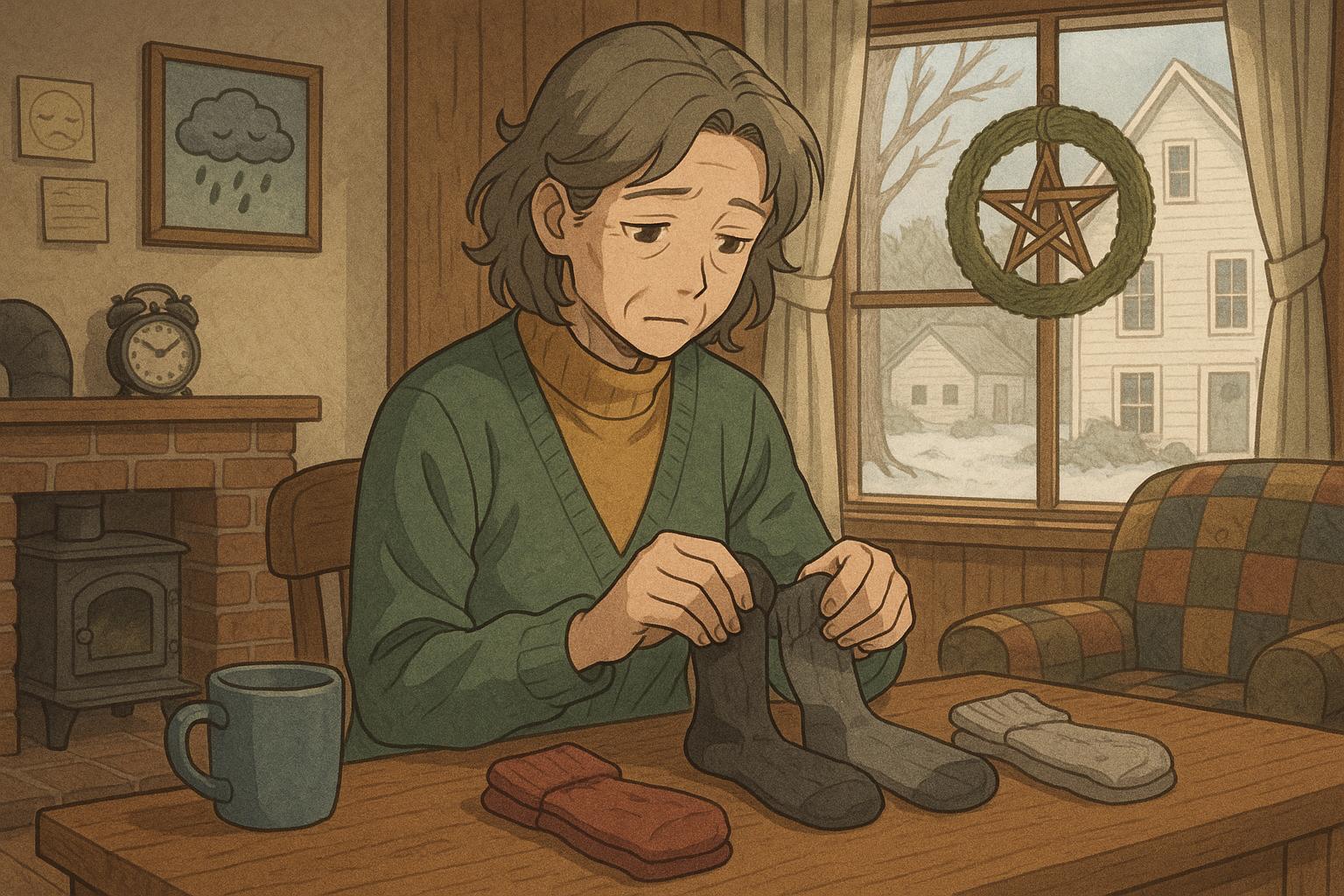In her latest graphic novel, Spent, Alison Bechdel gives readers an introspective journey steeped in both personal and societal anxieties. The narrative opens with Bechdel's cartoon avatar, also named Alison, meticulously rearranging her sock drawer in a bid to stave off a palpable sense of impending doom. The weight of this doom is multifaceted, encompassing everything from climate change to the pressures of late-stage capitalism, reflecting Bechdel's evolution as an artist and individual since she first emerged on the comic scene four decades ago.
Throughout her career, Bechdel has deftly navigated the intersection of personal experience and broader cultural critique. From her formative years as an underground lesbian cartoonist to her best-selling memoir Fun Home: A Family Tragicomic and its acclaimed Broadway adaptation, Bechdel's work has always resonated with the pressures of contemporary life. In Spent, the thematic exploration of aging and anxiety is more pronounced than ever. The protagonist grapples with the rapid pace of cultural changes, all of which feel as daunting as her own struggles with writer's block and familial tensions.
The title Spent serves as a dual metaphor. It captures both the state of the protagonist—a weary reflection on the exhaustion accompanying her aging—and a broader commentary on the commoditisation of personal narratives within a capitalist framework. Notably, the book is segmented into episodes, such as “The Commodity” and “The Process of Exchange,” which allows Bechdel to explore these ideas with a rich structural depth.
In weaving her story, Bechdel presents a queer communal household set in Vermont, where she draws upon fictionalised versions of friends and characters from her earlier work, Dykes to Watch Out For. This setting reveals a tapestry of interpersonal dynamics that blend sexual and domestic dramas, even as Alison finds herself wrestling with the implications of her newfound fame—a fate not entirely different from that of her real-life partner, Holly. As Holly’s popularity on social media through whimsical wood-chopping videos rises, Alison’s internal conflict mirrors the absurdities of the American economy, where success comes wrapped in layers of envy and dissatisfaction.
Central to Spent is the underlying tension between idealism and cynicism. Critics note that Bechdel navigates this through a candid self-deprecation, a hallmark of her style. Alison, faced with the reality of her memoir being transformed into a sensationalised TV series, confronts the absurdity of commodifying her life stories. Through humour and biting commentary, Bechdel demonstrates that even in retreating to a fictional space, the characters are still keenly aware of their social contexts and the world beyond their rural sanctuary.
By the novel's conclusion, a surprising sense of happiness emerges amidst the chaos of domestic life and societal worries. This fleeting joy is delicately portrayed when Alison observes nature, sharing tranquil moments with friends and beloved companions—an evocation of peace that seems both aspirational and attainable. Here, Bechdel offers a refreshing reminder that even as the world spins in uncertainty, solidarity and community can foster resilience.
Throughout her career, Bechdel has masterfully captured the complexities of queer life and its evolution, from the AIDS crisis to the current socio-political landscape, where LGBTQ+ rights remain precariously defended. As she reflects on the endurance of her youthful idealism, she raises pertinent questions that resonate today: Can love and friendship endure the overwhelming noise of a turbulent world? In a society fraught with challenges, Bechdel suggests that joy can coexist with anxiety, provided we build and nurture connections with others.
As the narrative of Spent unfolds, the realization dawns that even in an age marked by upheaval—encounters with “marauding militias” and the disarray of political discourse—finding moments of quiet amongst friends might be the most radical act of all. Alison’s journey is ultimately an invitation for readers to seek their own balance, recognising that life's complexities cannot overshadow the simple moments of joy that serve as a balm in turbulent times.
Reference Map:
- Paragraphs 1, 2, 3, 4: (1), (2)
- Paragraph 5: (3), (4)
- Paragraph 6: (6), (5)
- Paragraph 7: (7)
Source: Noah Wire Services
